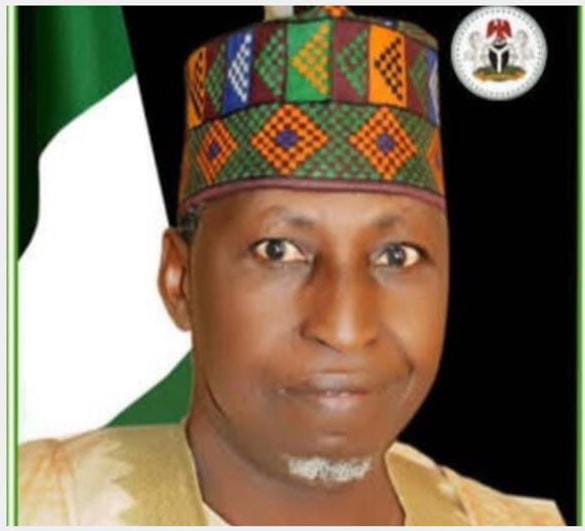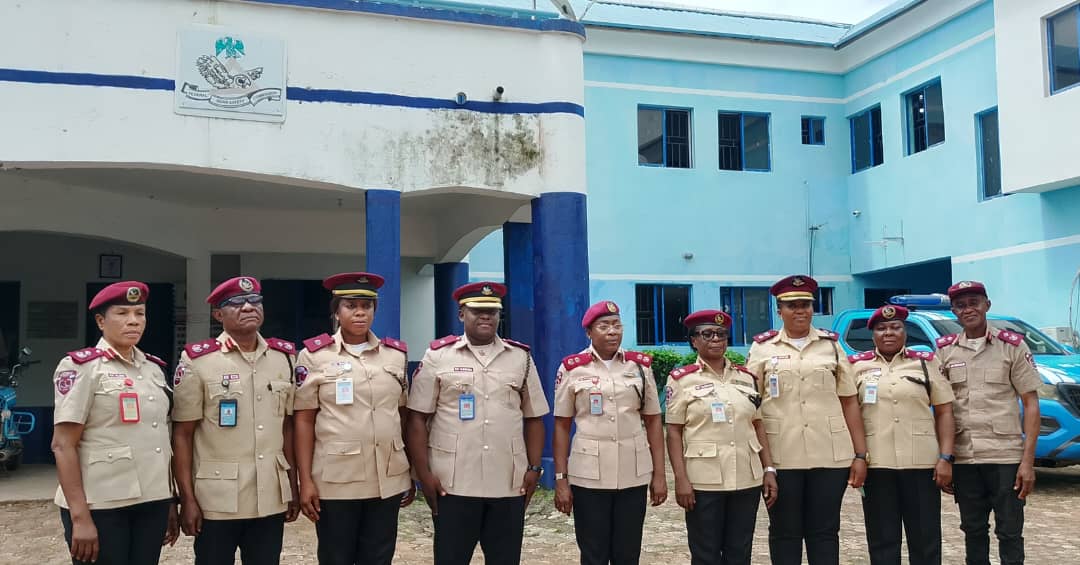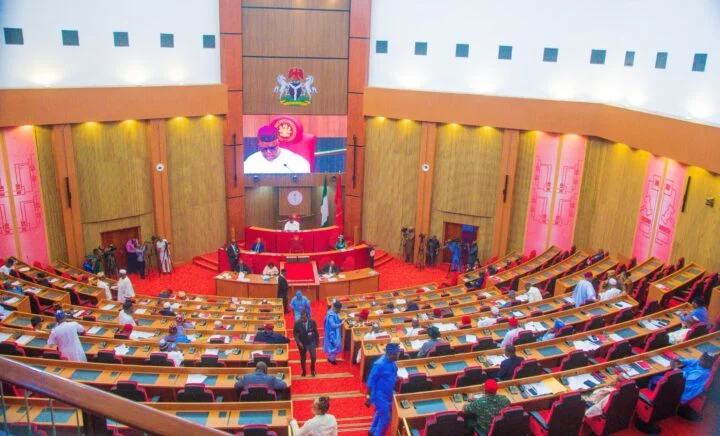Kebbi State Govt, REA Sign MoU to Drive Innovation, Build Resilient Electricity Market Hub’s
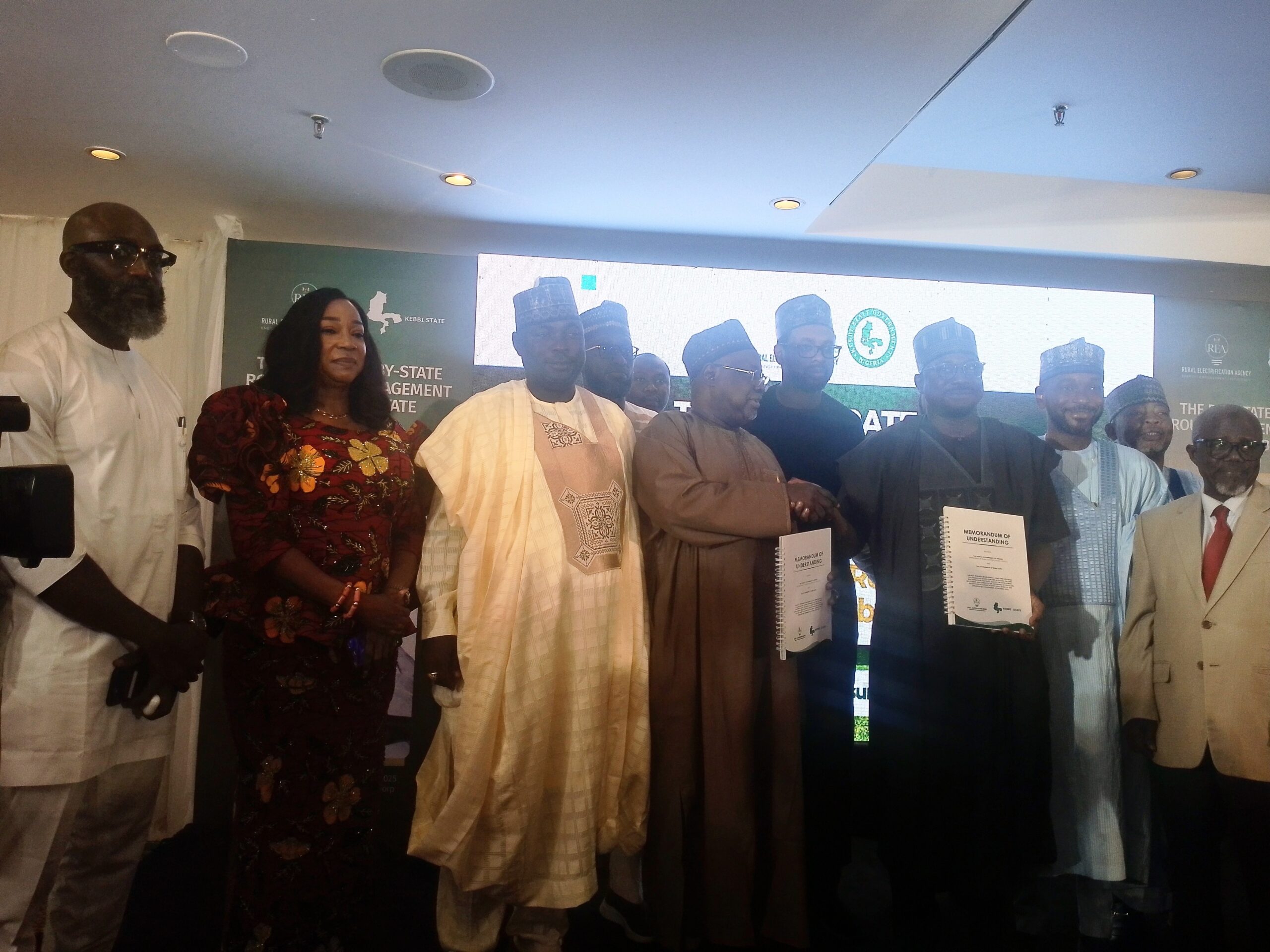
By Fatima Saka
The Kebbi State Government and the Rural Electrification Agency (REA) on Monday signed a Memorandum of Understanding (MoU) to accelerate access to reliable power, foster innovation, and build a resilient electricity market in the state.
The signing ceremony took place in Abuja during the REA State-by-State Roundtable Engagement with Kebbi State, themed “Bridging Infrastructure Gaps, Igniting Innovation Growth for a Resilient Electricity Market in Kebbi State.”
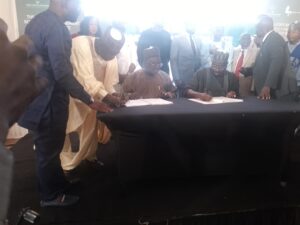
Giving his special addressed on behalf of Governor Dr. Nasir Idris, the Deputy Governor, Umar Abubakar Tafida, pledged the state’s full commitment to supporting the partnership.
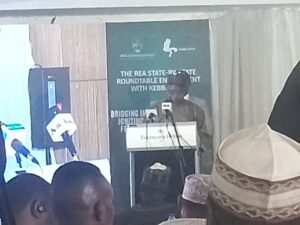
He assured stakeholders that Kebbi would provide an enabling environment and encourage private sector financing to drive energy investments.
“Whatever we are going to do, I give you the assurance that the state government’s support will be there for you, 100%,” Tafida said, stressing that reliable electricity is not just power, but “hope, opportunity, and a pathway to innovation.”
He noted that access to energy remains critical to improving education, healthcare, agriculture, and business in the state, adding that Kebbi is open for investment and committed to ensuring security and sustainability for investors.
Earlier, Mapping Kebbi for Energy Investments, the REA Managing Director/Chief Executive Officer, Abba Aliyu, revealed that the agency had conducted a comprehensive mapping exercise of all communities in Kebbi State.
The exercise, he explained, was designed to identify households, economic activities, and the most suitable technologies, whether mini-grids, solar home systems, or grid extension, to provide cost-effective and sustainable electrification.
Aliyu noted that REA is deliberately focusing on communities with viable economic activities that can sustain private sector-led mini-grid operations.
“The private sector is looking for communities where people are engaged in farming, trading, or small-scale industries. That way, once electricity is deployed, we know the ability to pay is high, and the projects remain sustainable,” he said.
Speaking on the Impact of the Electricity Act 2023, the REA boss underscored the significance of the Electricity Act 2023, which opened Nigeria’s power sector for greater private sector investment and gave states the legal framework to participate directly in electrification.
According to him, the Act mandates REA to deepen renewable energy deployment across the country and collaborate with states to establish local government electrification boards. This, he said, would ensure that electricity penetrates to rural and last-mile communities.
Highlighting Kebbi’s Readiness and Challenges, Aliyu disclosed that REA, working with consultants, had also conducted a subnational readiness assessment of all states, measuring their capacity across five critical areas: policy framework, funding and investment readiness, institutional capacity, infrastructure, and data availability.
Kebbi State, he revealed, currently ranks low, scoring 1 out of 5 in readiness, mainly due to gaps in funding, policy support, and institutional capacity. However, he stressed that with the new MoU, Kebbi has an opportunity to catalyze private investment and strengthen its policy environment.
“We have identified at least 22 million homes nationwide that still need electrification, requiring an investment of about $23 billion. Kebbi must position itself as an attractive destination for part of this funding. That is why this engagement is critical, to remove money from the pockets of private investors by showing them viable opportunities,” Aliyu added.
Speaking on the Pathway, the REA boss assured that the mapping data for Kebbi would be handed over to the state government, enabling policymakers to plan, update, and align electrification strategies with economic growth priorities. He emphasized that the agency is committed to working with Kebbi and private sector players to accelerate deployment of distributed renewable energy solutions.
The MoU, he added, represents not just a partnership, but a strategic shift toward sustainable development, economic growth, and energy access for all.
Presenting renewable energy opportunities in Kebbi State, Dr. Abba Kalgo highlighted the state’s vast potential beyond agriculture.
“Kebbi is not only an agricultural hub; we are also positioned for major energy investments,” he said.
He noted that Kebbi is home to the largest rice-mill in sub-Saharan Africa, the TDRS Mill, and emphasized that reliable energy access would further boost agricultural productivity and industrial growth.
“Our location gives us a natural advantage. Being close to the Sahara, Kebbi is blessed with abundant solar resources. This makes investment in solar power a no-brainer for us. With energy, we can reduce post-harvest losses, drive innovation, and strengthen food security,” Dr. Kalgo explained.
He added that Kebbi is one of the states most prepared to embrace renewable energy, stressing that access to energy capital and partnerships would unlock the state’s transformation.
“To conclude, Kebbi State stands at the threshold of an energy revolution. With the right collaborations and investments, we can achieve sustainable development and set a model for others to follow,” he said.
In her presentation, Hon. Doris Uboh, Executive Director, Rural Electrification Fund, highlighted ongoing and completed mini-grid projects across Nigeria, underscoring their role in bridging the nation’s energy access gap.
She noted that beyond isolated mini-grids, the agency is also implementing interconnected projects in underserved areas. “For instance, in Abia State, we have deployed a 100-kilowatt mini-grid in Chiwa community, while in Niger State, an interconnected mini-grid is serving the Lamberta community with 395 kilowatts. Both projects were co-sponsored by development partners, particularly the European Union. So far, we have achieved over five megawatts of interconnected mini-grids across 11 communities, and the work is still ongoing,” she explained.
She further cited early pilot projects such as the 91-kilowatt system in Karandadi Koa community, Argungu LGA, Kebbi State, and the newly awarded “REF Call 3” projects, which include a 50-kilowatt mini-grid for Mayquar community in Shalla LGA, also in Kebbi State. In addition, for hard-to-reach areas described as “last mile” communities, the agency has been deploying solar home systems (SHS), such as in Kawasu community, Bida LGA.
Hon. Uboh emphasized that these pilot projects serve not only as proof of concept but also as valuable lessons for scaling up. “From our research and data collection, it is clear that demand for electricity in rural communities is growing rapidly. However, extending the national grid to every village is neither feasible nor cost-effective. The sustainable solution lies in isolated and interconnected mini-grids. That is why we are now scaling our interventions to reach 100 communities per state, about 3,700 communities nationwide,” she stated.
She stressed that electrification efforts must be holistic to drive real impact. According to her, providing power without ensuring active off-takers would amount to wasted resources. Research by the agency identified five critical sectors that energy interventions must directly support: health, education, agriculture, rural communities, and transportation.
This informed the design of the EHARC Project (Energizing Health, Agriculture, Rural communities, and Education, with support for Connectivity/Transportation). Under this framework:
Health: Powering primary healthcare centers with reliable electricity for vaccine refrigeration, solar-powered boreholes for clean water, and streetlights for security.
Education: Prioritizing rural schools, equipping them with digital tools for e-learning.
FG Inaugurates Technical Working Group to Ensure Sustainability of Rural Water Supply Systems
Agriculture: Supporting agrarian communities with solar-powered irrigation pumps and cold storage facilities to preserve produce.
Rural Livelihoods & Transportation: Extending benefits to community-level enterprises and improving rural connectivity.
“The goal is not just to deliver electricity but to transform rural economies, improve health outcomes, strengthen education, and create a sustainable model for inclusive development,” Uboh added.
With the MoU in place, stakeholders say the partnership marks a decisive step toward lighting up Kebbi State, boosting economic productivity, and ensuring that no community is left behind in Nigeria’s drive for universal energy access.


